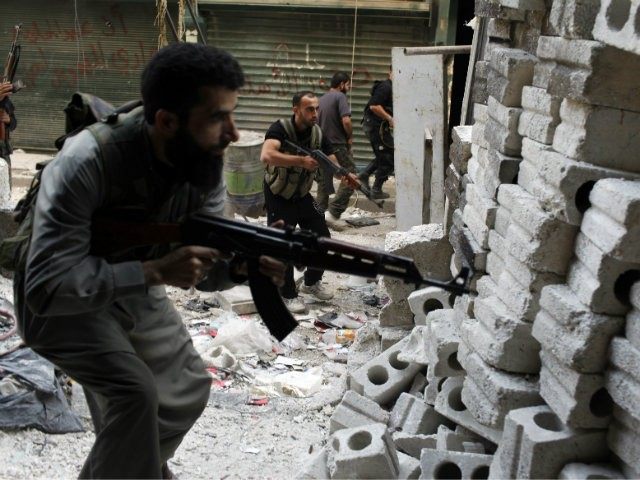(Reuters) – Al Qaeda’s Syrian branch was left reeling on Friday after its military chief was killed in an apparent army air strike, adding to confusion over the future path of the most powerful group opposing both President Bashar al-Assad and Islamic State.
Abu Humam al-Shami, who trained in Afghanistan alongside plotters of the Sept. 11 2001 attacks on the United States and whose Nusra Front controls wide parts of northwestern Syria, was killed by an explosion at a meeting of commanders on Thursday in Idlib province.
The Sunni Muslim militant group, loyal to the successors of Osama bin Laden, is one of the two most powerful anti-Assad forces in Syria, having split from Islamic State which rejects al Qaeda as insufficiently radical.
Abu Humam’s death comes at a time when the Nusra Front’s future direction has been in doubt, even as it has expanded its territorial grip in the northwest by crushing mainstream, Western-backed groups.
Sources in the group have said it was considering severing its ties to al Qaeda, a move that could result in more support from Gulf Arab states hostile to both Assad and Islamic State.
The Syrian military said it had carried out Thursday’s attack, which also killed a number of other Nusra leaders. A Syrian military source said the headquarters had been struck from the air.
Jihadist sources had initially said Thursday’s blast was the result of an air strike by a U.S.-led coalition that has been bombing Islamic State in Syria. However, the coalition denied mounting any strikes in the province in the preceding 24 hours. While the coalition has focused on Islamic State, the United States has occasionally also targeted Nusra Front figures.
Other groups on the battlefield were trying to assess the impact of the killing, with some saying Nusra Front would quickly replace the slain commander.” Everyone is still trying to figure out what happened yesterday. Two of the leaders were killed in coalition air strike around a week ago,” said the commander of a rival Islamist brigade in northern Syria.
“Abu Humam’s killing is very significant … But this group has built itself in a way that when one of its leaders is killed it won’t leave a gap.” The leader of a mainstream rebel group in northern Syria said there been no immediate repercussions on the ground.

COMMENTS
Please let us know if you're having issues with commenting.